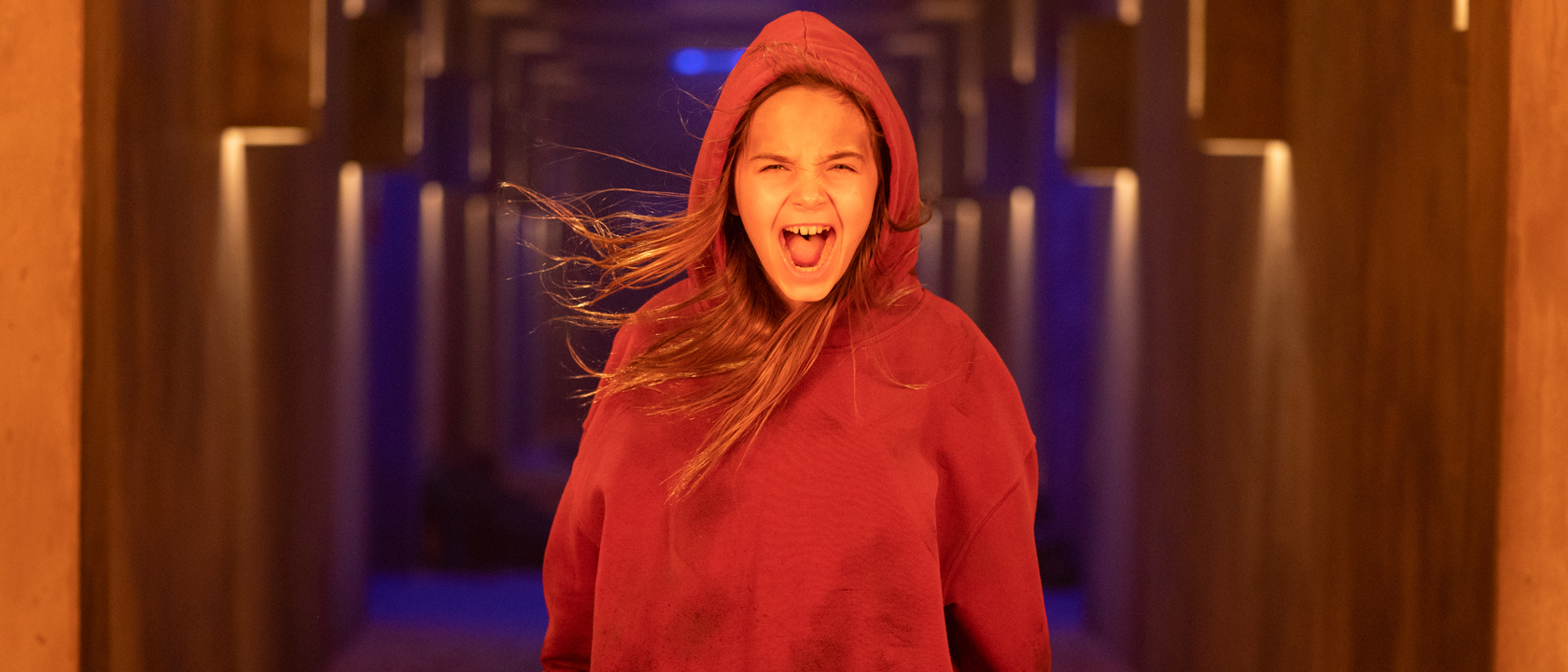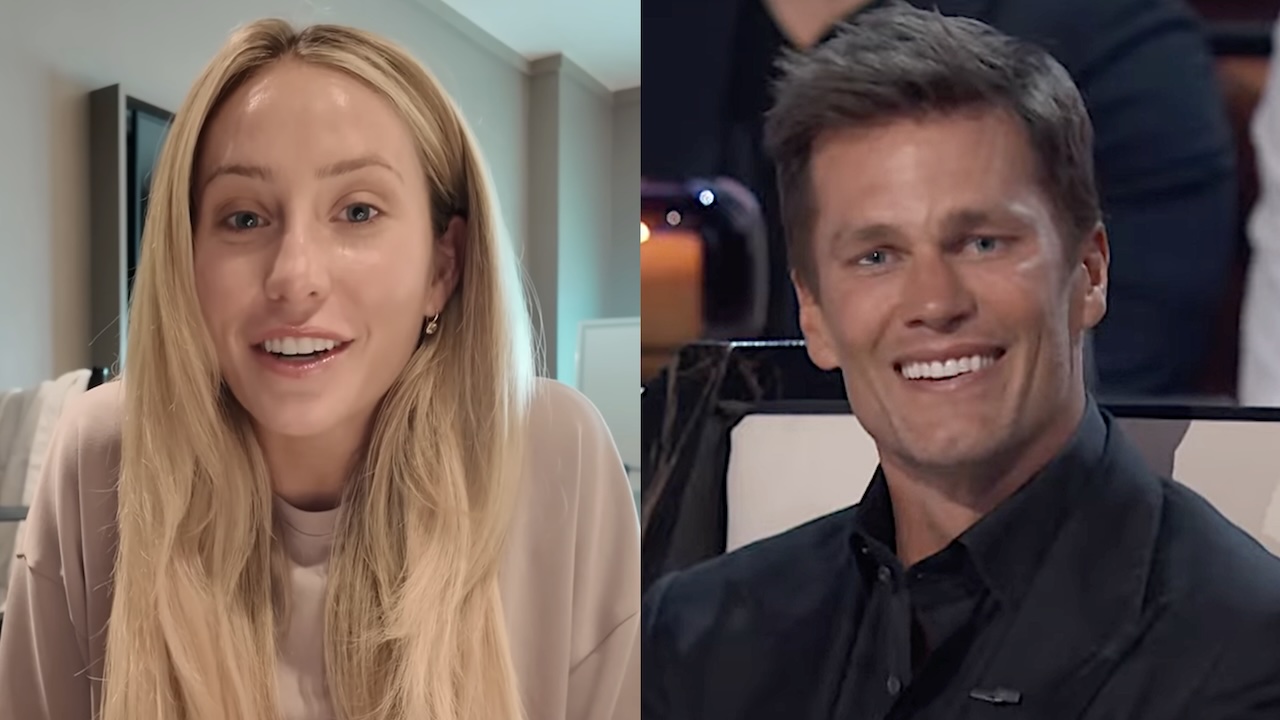Remakes are funny things. It’s a word that a lot of cinephiles bridle against, as what flashes to mind is the idea that executives are going to recreate a preexisting movie with simply a shiny new coat of paint, merely hoping to cash in on a recognizable title. It inspires new arguments for the patently wrong misconception that “Hollywood doesn’t make original films anymore.” But that perception is a fallacy. Obviously there are a lot of bad, pointless, and creatively bankrupt remakes – but there are also those that that have the capacity to render an original take as an asset instead of a liability.
Keith Thomas’ Firestarter is an adaptation of the novel of the same name by Stephen King, but it’s not the first. In 1984, four years after the book was originally published, director Mark L. Lester brought the story to the big screen featuring an all-star cast including Drew Barrymore, George C. Scott, Art Carney, Freddie Jones, Louise Fletcher and Martin Sheen, and it’s notably one of the more faithful film versions of King’s works. This turns out to be something that plays to the remake’s advantage, however, as its existence gives the new movie liberty to make different choices with the source material, and it allows the film to have the soul of the original story while also delivering surprises even (and perhaps especially) die-hard Stephen King fans can enjoy.
While both the novel and the original movie have a relatively firm structure, with the first half featuring the principal characters on the run and the second half finding them imprisoned in a government research lab, the new film loosens that up. In doing so, it allows the audience to see more of the father-daughter relationship that is at the heart of the narrative.
Andy McGee (Zac Efron) and his wife Vicky (Sydney Lemmon) are introduced as being a couple that has been living on the run ever since the birth of their daughter, Charlie (Ryan Kiera Armstrong). As college students, they met while participating in a test trial for a drug called Lot 6, and while most of their fellow volunteers didn’t survive the experiment, Andy walked away with telepathy and the ability to mentally command people, and Vicky became a telekinetic. Charlie is also gifted, being able to set fires with her mind, and her parents have spent years trying to prevent her from a fate as a government lab rat or a weapon.
When an explosive accident at Charlie’s school gets the McGees back on the radar of the Department of Scientific Intelligence (known in shorthand as The Shop), Captain Jane Hollister (Gloria Reuben) orders a capture mission, and to pull it off she activates Rainbird (Michael Greyeyes) – a hired gun who is also the product of experimentation by The Shop.
Firestarter changes a number of things from Stephen King's book, but mostly in smart ways.
Reading Stephen King’s book, it never made a whole lot of sense to me as to why The Shop would only loosely monitor the McGee family instead of always trying to contain them – and that’s just one of the things that this adaptation does well with the freedom to move away from the source material. Likewise, there is the a great deal more complexity added to Rainbird.
This is a thrilling character on the page because he is a homicidal lunatic, and there is always natural tension that is evoked because you never know his next move, but he’s also fairly one dimensional. Not only does Keith Thomas’ movie bring him into the action much earlier, having him be the first to move in after Charlie rather than being a mop-up guy, but his showdowns with the McGees are much more cinematic, and there are shades of grey instead of black-and-white villainy.
Your Daily Blend of Entertainment News
Also expanded is the role Vicky plays (she’s actually dead at the start of Stephen King’s novel), and it’s a well utilized character as she adds an important perspective in the ensemble. Every player in the piece has their own answer to the question, “What do we do about Charlie?” Vicky believes that her daughter needs to learn how to control her powers, while Andy advocates that she bottles them up. Captain Hollister essentially sees her as the key to unlocking the next step in human evolution, but Dr. Wanless (Kurtwood Smith) – the doctor who oversaw the Lot 6 experiments for The Shop – believes she needs to be killed before she is able to personally ignite nuclear-level destruction. Rainbird is trained to see her as a target, but he also has kinship with her.
Ryan Kiera Armstrong and Zac Efron make a great father/daughter pair in Firestarter.
Not lost in these changes is the bond between Andy and Charlie, as circumstances challenge Andy’s perspective on what’s right for Charlie, and the journey sees the girl coming into her own and learning how to control her powers. Ryan Kiera Armstrong proves to be an impressive find (and her reputation grows within the world of Stephen King adaptations, her resume including the scariest scene in Andy Muschietti’s IT Chapter Two). She is capable of being both the portrait of innocence at the start – inadvertently setting fires and hurting the people she loves – but by the end, she is a force to be reckoned with, and sells every ounce of it.
Zac Efron successfully delivers one of his most mature turns to date, and in addition to his paternal performance, he gets his own moments of creepy sci-fi. He sells his ability to “push” people with a neck crack and a stare, and it leaves him with the freaky side effect of crying blood (quite different than the simple nosebleeds in the book).
Firestarter has a stellar score to go along with its exciting psychic action.
Bloody tears is just one of the many great aesthetic touches that Keith Thomas and his crew deliver with Firestarter. The title comes with inherent promises of flame-centric action, and the film delivers – albeit not always in the most audience-friendly ways. This is particularly true in the third act climax, which has Charlie on a determined mission (though I can’t say much more about that without giving away plot details). Even beyond the fires, there is some exciting psychic action, such as Vicky using her rusty powers in a life-threatening showdown and a flashback depicting how Andy responded when he first discovered that his newborn daughter was in danger.
Deserving its own special mention is the score from John and Cody Carpenter and Daniel A. Davies. The Christine director has some interesting history with Firestarter’s source material, as he was going to direct an adaptation before the bottom fell out of the project – but that’s just a cool Easter egg behind what is an arresting and instantly recognizable synth sound that improves every scene in which its featured. It’s a modern story that gets a throwback feel from the music, and it’s a fantastic touch.
Firestarter doesn’t rank among the all-time best Stephen King adaptations, but it is an entertaining, well-made, and cinematic interpretation of the book that is far better than its predecessor. It won’t change the reputation of remakes, but can be remembered as an example of when they go right.

Eric Eisenberg is the Assistant Managing Editor at CinemaBlend. After graduating Boston University and earning a bachelor’s degree in journalism, he took a part-time job as a staff writer for CinemaBlend, and after six months was offered the opportunity to move to Los Angeles and take on a newly created West Coast Editor position. Over a decade later, he's continuing to advance his interests and expertise. In addition to conducting filmmaker interviews and contributing to the news and feature content of the site, Eric also oversees the Movie Reviews section, writes the the weekend box office report (published Sundays), and is the site's resident Stephen King expert. He has two King-related columns.

